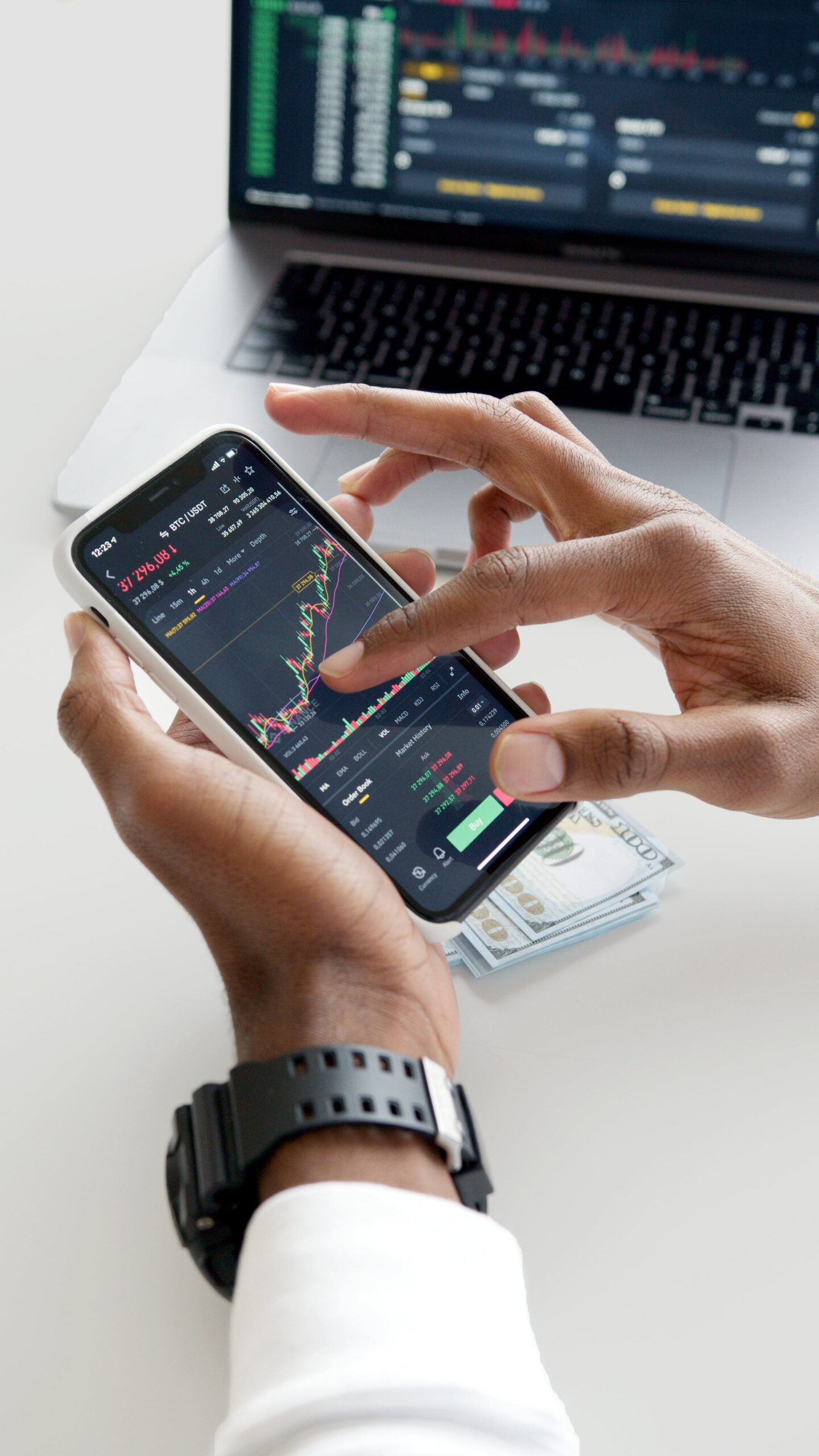Have you ever experienced a string of losses while trading and felt the overwhelming urge to make impulsive trades in an attempt to recover those losses? We’ve all been there, but it’s essential to understand the dangers of revenge trading. In this article, we’ll explore why revenge trading is a common trap for traders and how it can lead to even greater losses. Join us as we discover effective strategies to avoid revenge trading and regain control over your trading decisions.
Common Mistakes in Trading
When it comes to trading, there are several common mistakes that many traders tend to make. These mistakes can have a significant impact on your trading results and can lead to unwanted financial losses and emotional distress. In order to become a successful trader, it is important to recognize and avoid these common pitfalls. Three of the most prevalent mistakes in trading are lack of emotional control, revenge trading, and impulsive trading.
Lack of Emotional Control
One of the biggest mistakes that traders make is a lack of emotional control. Trading can be a roller coaster of emotions, with highs and lows that can affect your decision-making process. It is crucial to be able to keep your emotions in check and make rational decisions based on analysis and strategy, rather than letting emotions like fear or greed dictate your actions.
Revenge Trading
Revenge trading is another common mistake that traders tend to make. This occurs when traders try to recover their losses through impulsive trades. Instead of sticking to their trading plan and strategy, they let their emotions take over and make irrational decisions in an attempt to make up for their losses. Revenge trading can be extremely damaging and lead to even more significant financial losses.
Impulsive Trading
Impulsive trading is yet another mistake that traders often make. It involves making trades without proper analysis or consideration of the risks involved. Impulsive trading is driven by emotions, and traders may feel the need to act quickly without taking the time to evaluate the potential outcomes. Such impulsive actions can lead to poor investment decisions and unnecessary losses.
Understanding Revenge Trading
In order to avoid revenge trading, it is important to understand it fully. Revenge trading is defined as the act of trying to recover losses through impulsive trades. It is driven by strong emotions such as anger, frustration, or the desire for immediate profits. Understanding the psychological impact, as well as the underlying causes of revenge trading, can help traders recognize and prevent this destructive behavior.
Definition
Revenge trading refers to the act of engaging in impulsive trades with the sole purpose of recovering losses. It is a reaction to the emotional distress caused by losses and can be described as a form of emotional retaliation against the market. Instead of sticking to a well-thought-out trading plan, traders succumb to their emotions and make impulsive decisions to try and regain their losses quickly.
Psychological Impact
Revenge trading can have a significant psychological impact on traders. The emotions associated with revenge trading, such as anger, frustration, and fear, can cloud judgment and impair decision-making abilities. This can lead to impulsive and irrational trading decisions, which often result in further losses.
Causes
There are several underlying causes that can lead to revenge trading. One of the main causes is the inability to accept and cope with losses. Traders who have a hard time dealing with losses may feel the need to take immediate action to recover their losses, even if it means deviating from their trading plan. Additionally, external factors such as financial pressures or the fear of missing out (FOMO) can also contribute to revenge trading tendencies.

Consequences of Revenge Trading
Revenge trading can have severe consequences for traders. Understanding these consequences can help traders recognize the potential dangers and motivate them to take the necessary steps to avoid revenge trading.
Financial Losses
One of the most obvious consequences of revenge trading is the potential for significant financial losses. When traders engage in impulsive trades driven by emotions, they often let go of risk management principles and disregard proper analysis. This increases the likelihood of making poor investment decisions and, ultimately, losing more money.
Increased Stress and Anxiety
Revenge trading is associated with heightened levels of stress and anxiety. Constantly chasing losses and engaging in impulsive trading can take a toll on traders’ mental well-being. The emotional roller coaster that comes with revenge trading can lead to increased levels of stress, anxiety, and even burnout.
Damage to Trading Strategy
Engaging in revenge trading can also damage traders’ overall trading strategy. When traders deviate from their plan and make impulsive trades, they undermine the effectiveness of their strategy. This can negatively impact their long-term success and make it difficult to achieve their trading goals.
Recognizing Revenge Trading Symptoms
In order to prevent revenge trading, it is important to be able to recognize the symptoms and warning signs. By being aware of these symptoms, traders can take proactive steps to address them and avoid falling into the trap of revenge trading.
Overtrading
One of the key symptoms of revenge trading is overtrading. This refers to the excessive number of trades made within a short period of time. Traders who are revenge trading may feel the need to constantly be in the market and make impulsive trades, regardless of market conditions or analysis.
Ignoring Risk Management
Another symptom of revenge trading is ignoring risk management principles. Traders who are driven by emotions often neglect proper risk management techniques, such as setting stop loss orders or using position sizing strategies. This can expose them to unnecessary risks and increase the likelihood of significant losses.
Seeking Immediate Profits
Traders who engage in revenge trading often have a strong desire for immediate profits. Instead of focusing on long-term success, they chase quick wins in an attempt to recover their losses quickly. This short-term mindset can lead to impulsive trades and undermine their overall trading strategy.

Developing Emotional Control
To avoid revenge trading, it is crucial to develop emotional control. By learning how to manage your emotions effectively, you can make rational and well-informed trading decisions.
Self-Awareness
Self-awareness is key when it comes to emotional control. Recognize and acknowledge your emotions, and be aware of how they can impact your decision-making process. Take the time to reflect on your emotions before making any trading decisions.
Practicing Patience
Practicing patience is essential in trading. Avoid rushing into trades without proper analysis or consideration of the risks involved. Develop patience by waiting for optimal trading opportunities that align with your strategy and risk management principles.
Using Trading Journals
Keeping a trading journal can help you develop emotional control. Document your trades, including your emotions, thought process, and outcomes. Reviewing your journal can provide insights into your emotional tendencies and help you make adjustments to improve your decision-making.
Using Risk Management Strategies
Implementing risk management strategies is crucial in avoiding revenge trading. These strategies can help limit your losses and protect your trading capital.
Setting Stop Loss Orders
Setting stop loss orders is an effective risk management technique. By specifying the maximum amount of loss you are willing to accept on a trade, you can automatically exit a position if it reaches that level. This helps prevent losses from accumulating and minimizes the impact of emotionally driven decisions.
Position Sizing
Proper position sizing is another important risk management strategy. Determine the appropriate amount of capital to allocate to each trade based on your risk tolerance and overall trading plan. By controlling the size of your trades, you can limit potential losses and avoid the temptation to engage in revenge trading.
Avoiding Large Losses
Avoiding large losses is key to maintaining your trading capital and avoiding revenge trading. By implementing proper risk management techniques, such as setting stop loss orders and using position sizing strategies, you can protect yourself from significant losses that can be difficult to recover from.

Implementing a Trading Plan
Having a well-defined trading plan is essential for successful trading and can help prevent revenge trading. A trading plan outlines your goals, entry and exit rules, and overall trading strategy.
Having Clear Goals
Set clear and realistic trading goals. Define both short-term and long-term objectives that align with your overall trading strategy. Having clear goals can help keep you focused and motivated, reducing the likelihood of revenge trading.
Defining Entry and Exit Rules
Clearly define your entry and exit rules based on your analysis and trading strategy. This will help you make informed trading decisions and avoid making impulsive trades driven by emotions.
Executing Consistently
Consistency is key in trading. Once you have defined your trading plan, be disciplined in executing it. Stick to your predetermined entry and exit rules and avoid deviating from your strategy based on emotions or impulse.
Building a Support Network
Building a support network can be beneficial in avoiding revenge trading and staying on track with your trading goals.
Seeking Mentorship
Finding a mentor who has experience and success in trading can provide valuable guidance and support. A mentor can help hold you accountable, provide insights into overcoming challenges, and share valuable knowledge and strategies.
Joining Trading Communities
Joining trading communities can provide you with a network of like-minded individuals who can offer support and share experiences. Engaging with other traders can help you expand your knowledge, gain different perspectives, and stay motivated.
Creating Accountability
Create accountability by sharing your trading goals and progress with others. This can be done through accountability partners, trading groups, or online communities. Being held accountable can help you stay disciplined and avoid revenge trading.

Developing a Healthy Trading Mindset
Developing a healthy trading mindset is crucial for long-term success in trading and can help prevent revenge trading.
Accepting Losses
Losses are an inevitable part of trading. Instead of trying to avoid or recover from losses through revenge trading, it is important to accept them as a normal part of the trading process. Learn from your losses and use them as opportunities for growth and improvement.
Focusing on Long-Term Success
Focus on long-term success rather than short-term gains. Trading is a marathon, not a sprint. By keeping your focus on your long-term goals and maintaining a patient and disciplined approach, you can avoid the temptation of revenge trading and make sound investment decisions.
Maintaining Discipline
Discipline is key to avoiding revenge trading. Stick to your trading plan, follow your rules, and avoid making impulsive decisions driven by emotions. Stay disciplined even during periods of losses, as these are opportunities to learn and grow as a trader.
Professional Help for Revenge Trading
If you find that you are struggling to overcome revenge trading tendencies on your own, seeking professional help can be beneficial in breaking the cycle and developing healthier trading habits.
Therapy and Counseling
Therapy or counseling can provide a supportive and non-judgmental environment where you can explore the underlying causes of your revenge trading tendencies. A mental health professional can help you develop coping strategies and provide guidance for managing emotions effectively.
Coaching and Training
Working with a trading coach or participating in training programs can provide you with personalized guidance and support. A coach can help you identify and address specific issues related to your trading habits, as well as provide strategies and techniques for developing emotional control and disciplined trading.
Support Groups
Joining support groups or online communities dedicated to traders can provide a space where you can connect with others who are going through similar challenges. Sharing experiences, strategies, and support can help reinforce positive trading habits and provide motivation to avoid revenge trading.
In conclusion, revenge trading is a common mistake in trading that can lead to significant financial losses and emotional distress. By understanding the causes and consequences of revenge trading, recognizing the symptoms, developing emotional control, implementing risk management strategies, creating a trading plan, building a support network, developing a healthy trading mindset, and seeking professional help when needed, traders can avoid falling into the trap of revenge trading and increase their chances of long-term success in the markets. Remember, trading is a journey, and avoiding revenge trading is an essential step towards becoming a disciplined and profitable trader.

